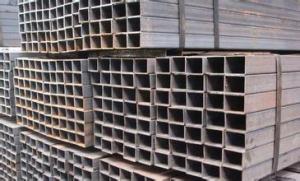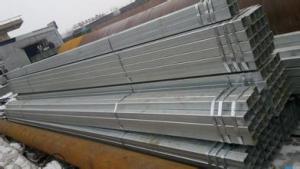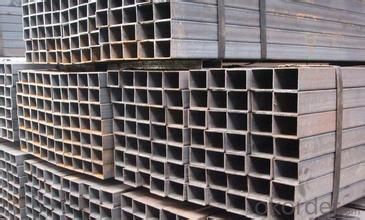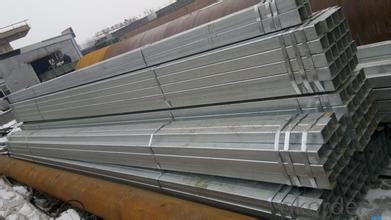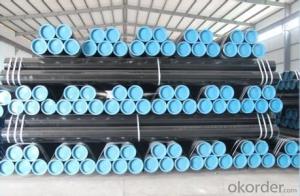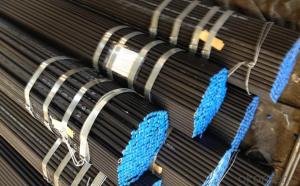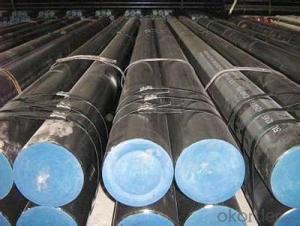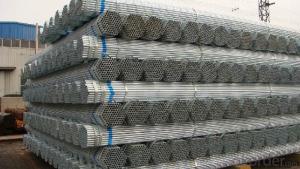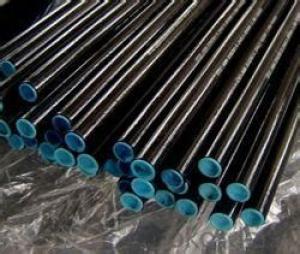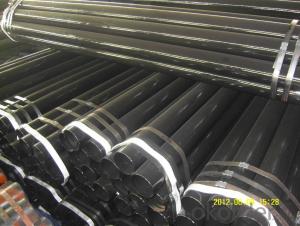Galvanized Square Hot Varieties Complete Tube
- Loading Port:
- China main port
- Payment Terms:
- TT or LC
- Min Order Qty:
- 5 m.t.
- Supply Capability:
- 5000 m.t./month
OKorder Service Pledge
OKorder Financial Service
You Might Also Like
Product Description:
Use
Mainly used for curtain wall, construction, machinery manufacturing, shipbuilding, steel construction projects, solar power support, steel structure engineering, power engineering, power plants, agricultural and chemical machinery, glass curtain wall, automobile chassis, airport etc.
Aluminum alloy | 6063,6061,6005,6082,7075,1050etc |
Temper | T3-T8 |
shape | square, round, flat, angle ,etc |
surface | Anodizing ,Powder coating, Electrophoresis, etc |
Deep processing ability | Drill hole ,stretch bending, milling, welding, fabrication, etc |
Usage | Windows & door , LED panel, heat sink , curtain wall , solar Panel Frame, rail & fence , ladder ,etc. |
MOQ | 1Ton |
Packing | According to your requirement ,such as shrink wrap, plastic bag, kraft paper ,etc. |
Delivery | 15-20days after sample confirmed & down payment. |
Loading port | Quanzhou, Xiamen |
Shipping term | EXW,FOB,CFR,CIF |
Payment term | T/T,30% advanced deposit, the balance paid off before loading, or consulting |
Moulds | 1,Using our moulds ,no fee |
2,Using customer drawing, opening mould, usually over 4tons then the moulds fee can be refunded | |
3,Mould cost is negotiable base on the order quantity |
FAQ of Rectangular Steel Tube
①How is the quality of your products?
Our products are manufactured strictly according to national and internaional standard, and we take a test
on every pipe before delivered out. If you want see our quality certifications and all kinds of testing report, please just ask us for it.
Guaranteed: If products’ quality don’t accord to discription as we give or the promise before you place order, we promise 100% refund.
②How about price?
Yes, we are factory and be able to give you lowest price below market one, and we have a policy that “ for saving time and absolutely honest business attitude, we quote as lowest as possible for any customer, and discount can be given according to quantity”,if you like bargain and factory price is not low enough as you think, just don’t waste your time.Please trust the quotation we would give you, it is professional one.
③Why should you chose us?
Chose happens because of quality, then price, We can give you both.Additionally, we can also offer professional products inquiry, products knowledge train(for agents), smooth goods delivery, exellent customer solution proposals.Our service formula: good quality+good price+good service=customer’s trust
SGS test is available, customer inspection before shipping is welcome, third party inspection is no problem.
If you have any question, pls feel free to contact us !
Rectangular Hot Rolled Steel Tube Image
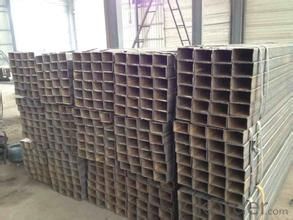
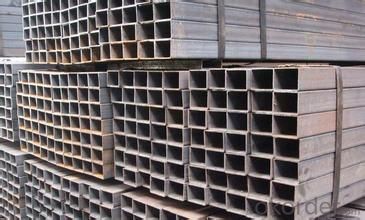
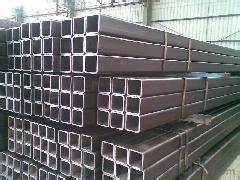
- Q: What is the difference between steel pipes and PPR pipes?
- Steel pipes are made of steel and are primarily used for transporting liquids and gases in industries such as oil, gas, and construction. They are durable, resistant to high temperatures and pressure, and have a long lifespan. On the other hand, PPR (polypropylene random copolymer) pipes are made of plastic and are commonly used for plumbing systems in residential and commercial buildings. PPR pipes are lightweight, easy to install, corrosion-resistant, and have good thermal insulation properties. They are more suitable for carrying water and other non-corrosive fluids.
- Q: How are steel pipes used in the manufacturing of power plants?
- Steel pipes are commonly used in the manufacturing of power plants for various purposes such as transporting fluids, gases, and steam. They are utilized for the construction of pipelines that carry water, fuel, and coolant to different parts of the power plant. Additionally, steel pipes are employed in the creation of boiler tubes and heat exchangers, which play a crucial role in the generation of steam and transfer of heat in power plants.
- Q: How are steel pipes used in the manufacturing industry?
- Steel pipes are commonly used in the manufacturing industry for various purposes such as transporting fluids and gases, providing structural support, and facilitating the flow of materials in industrial processes. They are essential for conveying liquids and gases over long distances or within manufacturing plants, ensuring efficient and reliable transportation. Additionally, steel pipes are utilized in the construction of infrastructure, machinery, and equipment, serving as a robust and durable component. Overall, steel pipes play a crucial role in the manufacturing industry due to their versatility, strength, and ability to withstand high pressure and temperature conditions.
- Q: Can steel pipes be used for gas distribution?
- Yes, steel pipes can be used for gas distribution due to their high durability and resistance to corrosion.
- Q: What is the maximum allowable deflection for steel pipes?
- The maximum allowable deflection for steel pipes is typically determined by industry standards and design codes. These standards and codes specify the acceptable limits of deflection to ensure the structural integrity and functionality of the pipes. The maximum allowable deflection varies depending on various factors such as the pipe diameter, wall thickness, material properties, and the type of application. It is important to consult the relevant standards and codes, such as the American Society of Mechanical Engineers (ASME) B31.3 code for process piping or the American Water Works Association (AWWA) standards for water transmission and distribution pipes, to determine the specific maximum allowable deflection for a particular steel pipe application. Following these guidelines helps to ensure the safe and efficient operation of steel pipes in various industries and applications.
- Q: Can steel pipes be used in extremely cold temperatures?
- Yes, steel pipes can be used in extremely cold temperatures. Steel is known for its strength and durability, making it suitable for various applications, including those in freezing conditions. However, it is important to note that steel contracts in cold temperatures, which may affect its dimensions and structural integrity. Therefore, proper insulation and precautions should be taken to prevent any potential issues such as cracking or leakage.
- Q: What are the safety considerations when working with steel pipes?
- There are several crucial safety considerations to bear in mind when working with steel pipes. To begin with, it is imperative to wear the appropriate personal protective equipment (PPE). This includes safety glasses or goggles to shield the eyes from debris or sparks, gloves to protect the hands from sharp edges or hot surfaces, and steel-toed boots to safeguard the feet from falling objects or heavy equipment. Additionally, it is advisable to wear a hard hat to shield the head from potential falling objects or hazards overhead. Moreover, one must be mindful of the weight and size of the steel pipes. Handling heavy pipes can strain the back and muscles, so it is essential to utilize proper lifting techniques and seek assistance when necessary. The use of lifting equipment, such as cranes or forklifts, can also help prevent injuries associated with heavy lifting. Another safety consideration is the risk of cuts or punctures. Steel pipes may have sharp edges or burrs, so it is important to handle them with care and wear suitable gloves to minimize the risk of injury. It is also recommended to inspect pipes for any defects or sharp edges before working with them. Furthermore, working with steel pipes may involve welding or cutting, which can generate sparks, heat, and fumes. It is vital to work in a well-ventilated area or employ proper ventilation equipment to ensure the elimination of harmful gases or fumes. Fire safety precautions, such as having fire extinguishers nearby and adhering to proper procedures for hot work, should also be taken. Lastly, one must be aware of potential hazards associated with working at heights or in confined spaces. When working on elevated platforms or scaffolding, fall protection measures, like safety harnesses or guardrails, should be in place. In confined spaces, proper ventilation and monitoring for hazardous gases are essential to prevent asphyxiation or exposure to toxic substances. By adhering to these safety considerations and following proper procedures, the risk of accidents or injuries when working with steel pipes can be significantly reduced.
- Q: How are steel pipes used in the aerospace manufacturing industry?
- Steel pipes are commonly used in the aerospace manufacturing industry for various purposes such as hydraulic systems, fuel lines, and structural components. They offer excellent strength, durability, and resistance to high temperatures, making them ideal for carrying fluids and supporting the overall structure of aircraft.
- Q: What are the safety measures to consider when working with steel pipes?
- When working with steel pipes, it is important to follow specific safety measures to ensure a safe working environment. Some key safety measures to consider include wearing appropriate personal protective equipment (PPE) such as gloves, safety glasses, and steel-toed boots to protect against potential injuries. Additionally, workers should be cautious of sharp edges and use tools designed for cutting and handling steel pipes. It is crucial to secure pipes properly to prevent accidents caused by falling or rolling pipes. Lastly, workers should be trained on proper lifting techniques to avoid strain or injury when handling heavy steel pipes.
- Q: What are the factors affecting the price of steel pipes?
- There are several factors that can affect the price of steel pipes. Some of the key factors include the cost of raw materials such as iron ore and other metals, energy prices, labor costs, transportation costs, and market demand and supply dynamics. Additionally, currency exchange rates, government regulations, and trade policies can also impact the price of steel pipes in the global market.
Send your message to us
Galvanized Square Hot Varieties Complete Tube
- Loading Port:
- China main port
- Payment Terms:
- TT or LC
- Min Order Qty:
- 5 m.t.
- Supply Capability:
- 5000 m.t./month
OKorder Service Pledge
OKorder Financial Service
Similar products
Hot products
Hot Searches
Related keywords
